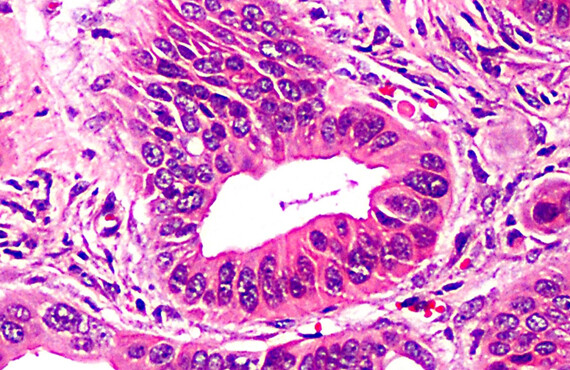Penn: Pluripotent Stem Cells Made From Pancreatic Cancer Cells Show Progression
Pancreatic cancer carries a dismal prognosis. According to the National Cancer Institute, the overall five-year relative survival for 2003-2009 was 6 percent.
Still, researchers and clinicians don’t have a non-invasive way to even detect early cells that portent later disease. ‘There’s no PSA test for pancreatic cancer,’ they say, and that’s one of the main reasons why pancreatic cancer is detected so late in its course.
They have been searching for a human-cell model of early-disease progression. Now, Perelman School of Medicine, University of Pennsylvania scientists have used stem-cell technology to create a research cell line from a patient with advanced pancreatic ductal adenocarcinoma (PDAC).
This first-of-its-kind human-cell model of pancreatic cancer progression was published this week in Cell Reports from the lab of Ken Zaret, PhD, professor of Cell and Developmental Biology.
“It is the first example using induced pluripotent stem [iPS] cells to model cancer progression directly from a solid tumor, and the first human cell line that can model pancreatic cancer progression from early to invasive stages,” says Zaret, also the associate director of the Penn Institute for Regenerative Medicine.
“We were able to predict the appearance of cellular features and protein markers in the intermediate stages of pancreatic cancer that are not evident in the terminal stages. This has given us new perspectives into what this deadly type of cancer looks like – something no one has seen before in human cells. Our analysis revealed known molecular networks that are activated during PDAC progression, as well as a new molecular network that is activated during the intermediate stages. This could provide a fresh outlook on biomarkers for early stages of the disease.”
Click here to view the full release.








